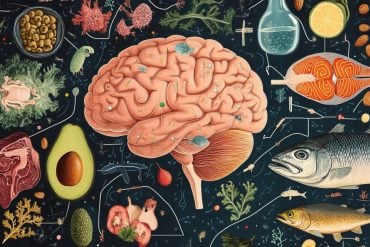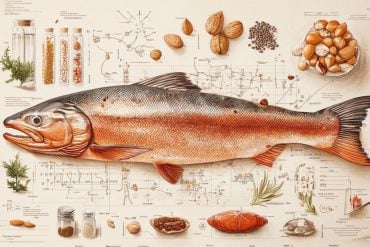Summary: Large twin study finds a strong genetic contribution to dog ownership in adulthood. Researchers speculate genetic variations may have contributed to the human ability to domesticate dogs and other animals.
Source: Uppsala University
A team of Swedish and British scientists have studied the heritability of dog ownership using information from 35,035 twin pairs from the Swedish Twin Registry. The new study suggests that genetic variation explains more than half of the variation in dog ownership, implying that the choice of getting a dog is heavily influenced by an individual’s genetic make-up.
Dogs were the first domesticated animal and have had a close relationship with humans for at least 15,000 years. Today, dogs are common pets in our society and are considered to increase the well-being and health of their owners. The team compared the genetic make-up of twins (using the Swedish Twin Registry – the largest of its kind in the world) with dog ownership. The results are published for the first time in Scientific Reports. The goal was to determine whether dog ownership has a heritable component.
“We were surprised to see that a person’s genetic make-up appears to be a significant influence in whether they own a dog. As such, these findings have major implications in several different fields related to understanding dog-human interaction throughout history and in modern times. Although dogs and other pets are common household members across the globe, little is known how they impact our daily life and health. Perhaps some people have a higher innate propensity to care for a pet than others.” says Tove Fall, lead author of the study, and Professor in Molecular Epidemiology at the Department of Medical Sciences and the Science for Life Laboratory, Uppsala University.
Carri Westgarth, Lecturer in Human-Animal interaction at the University of Liverpool and co-author of the study, adds:
“These findings are important as they suggest that supposed health benefits of owning a dog reported in some studies may be partly explained by different genetics of the people studied”.
Studying twins is a well-known method for disentangling the influences of environment and genes on our biology and behaviour. Because identical twins share their entire genome, and non-identical twins on average share only half of the genetic variation, comparisons of the within-pair concordance of dog ownership between groups can reveal whether genetics play a role in owning a dog. The researchers found concordance rates of dog ownership to be much larger in identical twins than in non-identical ones – supporting the view that genetics indeed plays a major role in the choice of owning a dog.

“These kind of twin studies cannot tell us exactly which genes are involved, but at least demonstrate for the first time that genetics and environment play about equal roles in determining dog ownership. The next obvious step is to try to identify which genetic variants affect this choice and how they relate to personality traits and other factors such as allergy” says Patrik Magnusson, senior author of the study and Associate Professor in Epidemiology at the Department of Medical Epidemiology and Biostatistics at Karolinska Insitutet, Sweden and Head of the Swedish Twin Registry.
“The study has major implications for understanding the deep and enigmatic history of dog domestication” says zooarchaeologist and co-author of the study Keith Dobney, Chair of Human Palaeoecology in the Department of Archaeology, Classics and Egyptology at the University of Liverpool. “Decades of archaeological research have helped us construct a better picture of where and when dogs entered into the human world, but modern and ancient genetic data are now allowing us to directly explore why and how?”
Source:
Uppsala University
Media Contacts:
Tove Fall – Uppsala University
Image Source:
The image is in the public domain.
Original Research: Open access
“Evidence of large genetic influences on dog ownership in the Swedish Twin Registry has implications for understanding domestication and health associations”. Tove Fall, Ralf Kuja-Halkola, Keith Dobney, Carri Westgarth & Patrik K. E. Magnusson.
Scientific Report. doi:10.1038/s41598-019-44083-9
Abstract
Evidence of large genetic influences on dog ownership in the Swedish Twin Registry has implications for understanding domestication and health associations
Dogs were the first domesticated animal and, according to the archaeological evidence, have had a close relationship with humans for at least 15,000 years. Today, dogs are common pets in our society and have been linked to increased well-being and improved health outcomes in their owners. A dog in the family during childhood is associated with ownership in adult life. The underlying factors behind this association could be related to experiences or to genetic influences. We aimed to investigate the heritability of dog ownership in a large twin sample including all twins in the Swedish Twin Registry born between 1926 and 1996 and alive in 2006. Information about dog ownership was available from 2001 to 2016 from national dog registers. The final data set included 85,542 twins from 50,507 twin pairs with known zygosity, where information on both twins were available in 35,035 pairs. Structural equation modeling was performed to estimate additive genetic effects (the heritability), common/shared environmental, and unique/non-shared environmental effects. We found that additive genetic factors largely contributed to dog ownership, with heritability estimated at 57% for females and 51% for males. An effect of shared environmental factors was only observed in early adulthood. In conclusion, we show a strong genetic contribution to dog ownership in adulthood in a large twin study. We see two main implications of this finding: (1) genetic variation may have contributed to our ability to domesticate dogs and other animals and (2) potential pleiotropic effects of genetic variation affecting dog ownership should be considered in studies examining health impacts of dog ownership.






